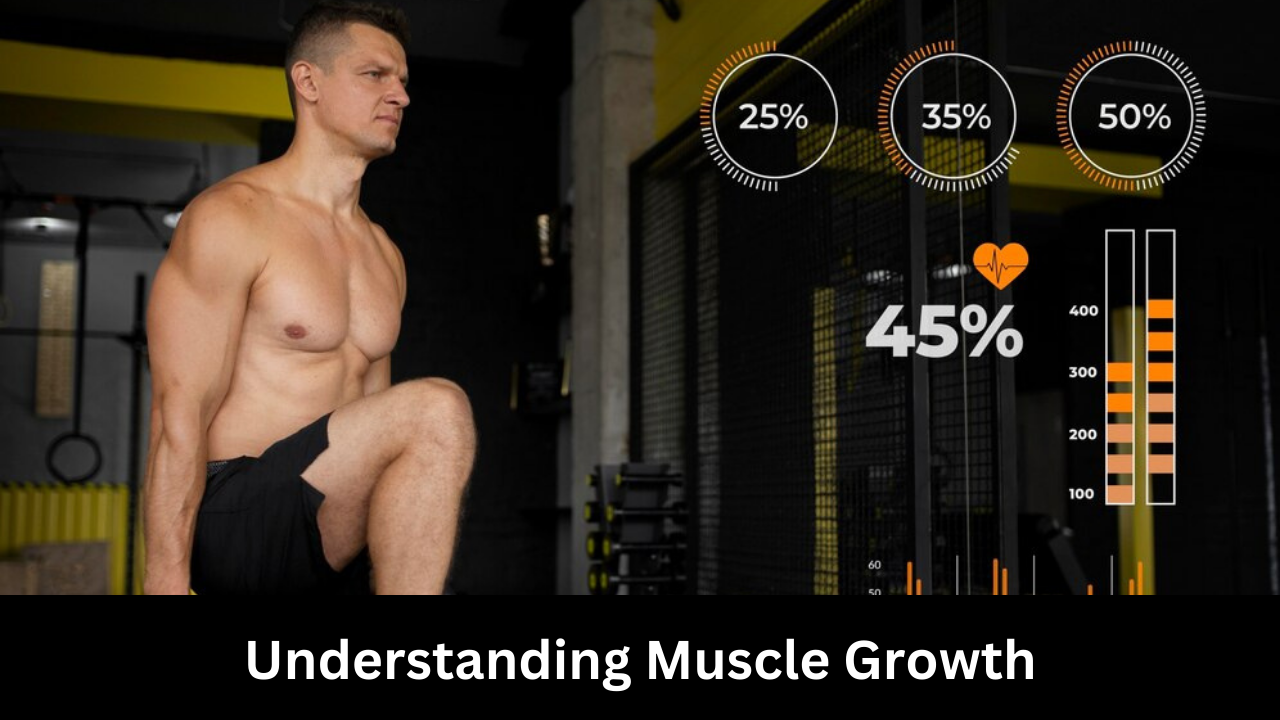Welcome to Wellhealth‘s ultimate guide on how to build muscle effectively. Whether you’re a beginner or a seasoned gym-goer, this article will provide you with actionable tips, proven workouts, and valuable nutrition advice to help you achieve your muscle-building goals. From understanding the science behind muscle growth to optimizing your training and diet, we’ve got you covered.




Table of Contents
ToggleUnderstanding Muscle Growth

The Science Behind Muscle Growth
To effectively build muscle, it’s essential to understand the underlying physiology. Muscle growth, also known as hypertrophy, occurs when muscle fibers undergo damage during exercise and repair themselves through protein synthesis, leading to an increase in muscle size and strength. This process is influenced by various factors, including genetics, training intensity, and nutrition.Types of Muscle Hypertrophy
Muscle hypertrophy can be categorized into two main types: myofibrillar hypertrophy and sarcoplasmic hypertrophy. Myofibrillar hypertrophy involves an increase in the size and number of contractile proteins within muscle fibers, resulting in greater strength gains. Sarcoplasmic hypertrophy, on the other hand, refers to an increase in the fluid and energy stores within muscle cells, leading to a more significant muscle pump and endurance.Factors Affecting Muscle Growth
Several factors influence muscle growth, including:- Training Intensity: High-intensity resistance training stimulates muscle fibers to grow by creating micro-tears in muscle tissue.
- Progressive Overload: Gradually increasing the resistance or volume of your workouts ensures continued muscle stimulation and growth.
- Nutrition: Consuming an adequate amount of protein, carbohydrates, and fats is crucial for supporting muscle repair and growth.
- Rest and Recovery: Muscles grow during periods of rest, so prioritizing sleep and recovery is essential for optimal muscle gains.
Optimizing Your Workouts

Resistance Training Basics
To build muscle effectively, focus on compound exercises that target multiple muscle groups simultaneously, such as squats, deadlifts, bench presses, and rows. Aim to perform 3-4 sets of each exercise, with 8-12 repetitions per set, using a weight that challenges you while maintaining proper form.Split Training vs. Full-Body Workouts
Both split training and full-body workouts can be effective for building muscle, depending on your goals and preferences. Split training involves dividing your workouts by muscle groups (e.g., chest and triceps, back and biceps), while full-body workouts target all major muscle groups in a single session. Experiment with both approaches to find what works best for you.Training Frequency and Volume
Consistency is key when it comes to building muscle. Aim to train each muscle group 2-3 times per week, allowing for adequate rest between sessions. Gradually increase the volume and intensity of your workouts over time to continue challenging your muscles and promoting growth.Nutrition for Muscle Growth

The Importance of Protein
Protein is the building block of muscle tissue, making it essential for muscle repair and growth. Aim to consume 1.6–2.2 grams of protein per kilogram of body weight per day from quality sources such as lean meats, poultry, fish, eggs, dairy, legumes, and plant-based protein sources like tofu and tempeh. Chia seeds are another excellent addition to your diet—though not high in protein per serving, they offer a good balance of essential amino acids and are rich in omega-3 fatty acids, fiber, and antioxidants, which support overall health, reduce inflammation, and aid in muscle recovery.Carbohydrates for Energy
Carbohydrates are your body’s primary source of energy during workouts, making them essential for fueling intense training sessions. Choose complex carbohydrates like whole grains, fruits, vegetables, and legumes to provide sustained energy and support muscle glycogen stores.Healthy Fats for Hormonal Balance
Include healthy fats in your diet from sources such as avocados, nuts, seeds, and olive oil. These fats are crucial for hormone production, including testosterone, which plays a significant role in muscle growth and recovery.Supplements for Muscle Building

Whey Protein
Whey protein is a popular supplement among athletes and fitness enthusiasts due to its fast absorption rate and high amino acid content, making it ideal for post-workout recovery and muscle repair.Creatine
Creatine is one of the most researched and effective supplements for increasing strength and muscle size. It works by enhancing the body’s ability to produce adenosine triphosphate (ATP), the primary energy currency of cells, leading to improved performance and muscle gains.Branched-Chain Amino Acids (BCAAs)
BCAAs, including leucine, isoleucine, and valine, are essential amino acids that play a crucial role in muscle protein synthesis and recovery. Consuming BCAAs before or during workouts can help reduce muscle fatigue and promote muscle growth.FAQs (Frequently Asked Questions)
- Can I build muscle without lifting weights? Yes, while resistance training is the most effective way to build muscle, bodyweight exercises like push-ups, pull-ups, and squats can also stimulate muscle growth, especially for beginners.
- How long does it take to build noticeable muscle? The rate of muscle growth varies depending on factors such as genetics, training intensity, and nutrition. With consistent training and proper nutrition, most people can expect to see noticeable muscle gains within 8-12 weeks.
- Is cardio necessary for muscle building? While cardio can help improve cardiovascular health and aid in fat loss, excessive cardio can interfere with muscle growth by burning excess calories needed for muscle repair and growth. Incorporate moderate cardio into your routine, focusing primarily on resistance training for muscle building.
- Do I need to eat more to build muscle? To build muscle effectively, you need to consume a slight calorie surplus to provide your body with the energy and nutrients it needs for muscle repair and growth. Aim for a balanced diet that includes adequate protein, carbohydrates, and fats, and adjust your calorie intake based on your individual goals and activity level.
- How important is sleep for muscle growth? Sleep is crucial for muscle growth and recovery, as it’s during sleep that your body produces growth hormone and repairs damaged muscle tissue. Aim for 7-9 hours of quality sleep per night to optimize muscle growth and overall health.
- Can women build muscle as effectively as men? Yes, women can build muscle just as effectively as men, although they may have lower levels of testosterone, which can affect the rate of muscle growth. However, with proper training and nutrition, women can achieve significant muscle gains and improve their strength and physique.
